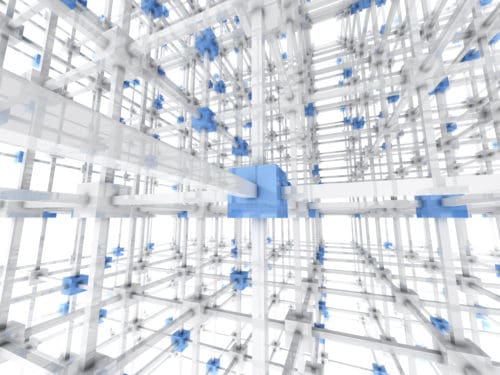
What is blockchain? Probably there’s no single person left who haven’t heard about it. Blockchain has become a synonym to crypto currencies, and, indeed, it was conceived as the system for managing bitcoins and ensuring that all the operations run securely and transparently, with each transaction being properly recorded.
However, finance industry was just a start of technology usage. With its decentralized nature, blockchain provides at least three advantages:
- Increased security by distributing the ledger to the thousands of computers.
- Transparency by recording each transaction to be available to any involved party.
- Independence of the nodes so that the system can function even if some of them go down.
That said, we can see that the whole concept works well in multiple spheres where there’s need to conduct some operations without direct intermediaries.
Did you know that the technology is already used for trading goods, identity, intellectual rights, and even solar energy? Let’s take a look at some unconventional uses of blockchain.
1. Solar sharing
They say, in the future, we’ll no longer need energy providers at all, as any energy can be generated, stored, and distributed among individuals without any middlemen.
If it still sounds like a science fiction to you, then you’ll be surprised to learn about SolarCoins that are already in action among the people who live in homes with solar energy panels. The currency underpinning the process is known as SolarCoin and can be claimed by providing a proof that you are the owner of solar panels or commercial devices generating solar electricity. One SolarCoin is worth 1 megawatt per hour of energy, and the whole system allows getting solar energy cheaper for those who cannot afford it in a standard way. What is more, SolarCoins can be exchanged into BitCoins, and as a result, into the real currency, such as US dollars.
2. Land registry
A lot of countries have had much concern about the issue of land registry, the most of the mess was caused in developing countries. For example, people in Honduras or Ghana has gotten into the situations when they were evicted from their houses, as all the land registries are controlled by the corrupt government.
Not only the developing countries are interested in the technology – Sweden claimed to be experimenting with bringing blockchain into their land registry system. The main goal for real estate industry is to make all transactions secure and visible to both buyers and sellers and any viable parties between them, thus minimizing fraud and encouraging owners to register their land.
3. File storage
Can this be really true that your files will no longer be stored on Amazon or Dropbox servers but spread across the millions of computers around the world? Sounds a bit insecure but being underpinned by end-to-end encryption this idea means that only you can access the small chunks of your data as a whole.

Storj.io have already been rethinking the concept of distributed cloud storage and creating their own open-source platform based on blockchain to bring more transparency and security cloud storages lack.
4. Media content
Could you imagine the social media where you can exchange likes on your posts for BitCoins? The opportunity is already there! Steemit is a social networking platform that runs on the top of the blockchain database Steem. The main principle of the platform is to return the value of social media posts to the authors creating popular content. The system slightly differs from the traditional schemes: the reward Steem Dollars is given not only to content creators but also to contributors upvoting popular posts.
A younger brother of Steem is Steepshot – a blockchain-based Instagram exploiting the same Steemit platform but having another principle: it gains cryptocurrency for likes on the most popular users’ photos.
- Music
A lot of songwriters suffer from the licensing inconsistencies and the lack of verified global registry of their music. The idea to sell their works directly to their fans has become available with the emergence of the blockchain technology. A famous singer Imogen Heap has been a ground breaker of bringing blockchain into music industry. This all started with her song Tiny Human distributed with the help of Ethereum platform and was successfully developed by the blockchain project Mycelia intended for the fair trade of music.
To sum up, there is a new challenge for the software development firms that has built their reputation in the financial sector creating blockchain-based applications. Their activity is no longer limited to maintaining security and reliability of transactions and their records but also finding ways to implement the blockchain solutions to the industries and niches that go beyond finance technology, such as media, commerce, or healthcare. One thing is clear: blockchain will stay in demand for the next few years, and fundamentally change how the world economy works.
 Gearfuse Technology, Science, Culture & More
Gearfuse Technology, Science, Culture & More


